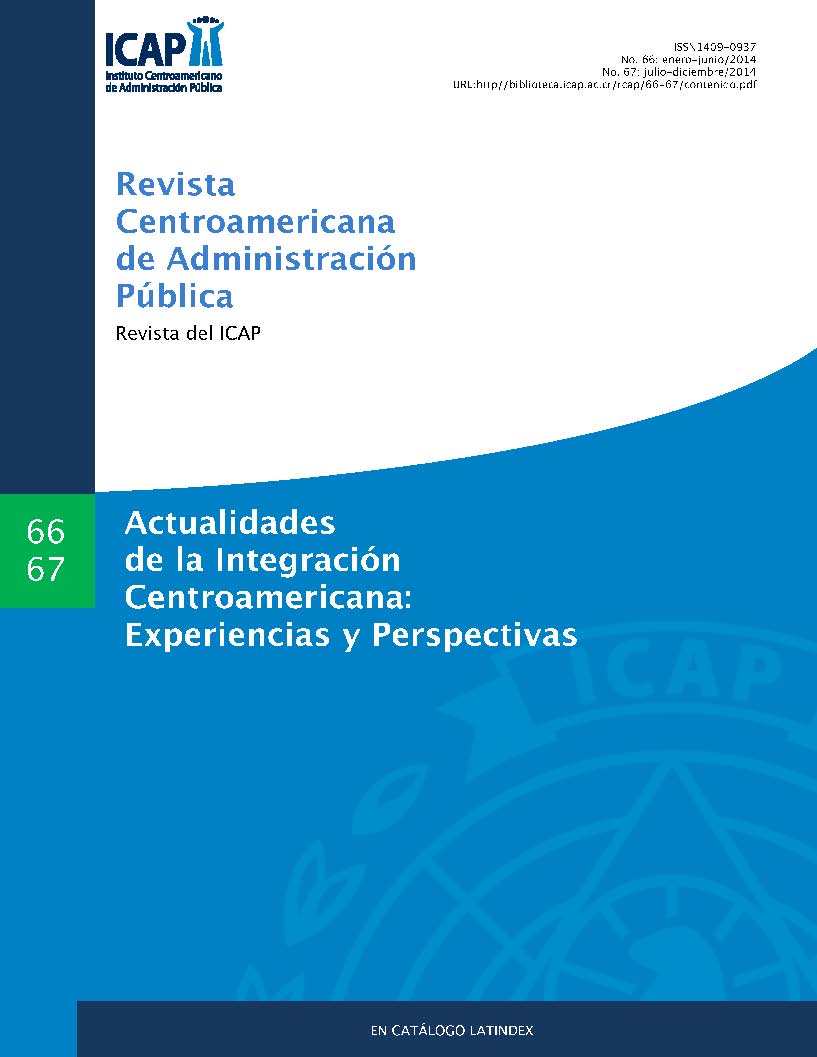No. 66-67 (2014): Central American Integration Actualities: Experiences and Perspectives.

In the early 1990s, a time of pacification and national and regional reconciliation, Central American integration broadened its conception, defined its principles and changed its institutional scheme, moving from the Organization of Central American States, ODECA, to the Central American Integration System, SICA, based on the Regional Treaty "Protocol of Tegucigalpa" of 1991, signed and ratified by all Central American countries, laying the foundations for a second era of Central American Integration. This Treaty stipulates, among other things, the creation of two subsystems: economic and social and sixteen specific sectors, giving rise to the emergence and creation of a series of regional organizations that gave organic structural content to the Central American Integration Treaty, promoting both the development of new entities and the widening of the regional institutional framework.
Twenty years after these events, SICA has been gradually and multidimensionally institutionalized, and with it, the Central American institutional bodies, whose institutional dynamics, embedded in the contextual challenges, has outlined the incorporation of management, little by little, to fulfill its mission and raison d'être, developing and making explicit a series of management instruments: policies, plans, programs, projects, etc., allowing to share the basic developments that have been generated in this regard, enriching and promoting knowledge management.
A stop in this work developed by this institutionality is shown in issues 66 and 67 of the Central American Journal of Public Administration, published by the Central American Institute of Public Administration, ICAP, dedicated to the topic of "Current Issues in Central American Integration: Experiences and Perspectives", which includes in its five sections, a set of concerns and identification of challenges, as well as the systematization and explanation of Central American thought applied to the reality of the region, illustrating lessons learned as well as good practices, case studies, models, etc.
ICAP is pleased to make these updates available to the Central American community of universities, government, regional institutions and civil population, with the purpose of disseminating knowledge and at the same time, encourage reflection and generation of regional thinking in public administration and Central American integration.










